Discover House Calls with Dr. Vivek Murthy
House Calls with Dr. Vivek Murthy

House Calls with Dr. Vivek Murthy
Author: Office of the U.S. Surgeon General
Subscribed: 168Played: 3,684Subscribe
Share
© Office of the U.S. Surgeon General
Description
Do you believe conversations can heal? I do. I’m U.S. Surgeon General Dr. Vivek Murthy. When I was growing up, my father would make “house calls,” bringing medical care to patients at home. The relationships he built with his patients through conversation were an essential part of healing. On House Calls, I carry forward this tradition. In each episode, I take my guests off-script to explore how they navigate the messiness and uncertainties of life to find meaning and joy. By sharing openly what’s on our minds and in our hearts, we can find strength and healing through connection.
75 Episodes
Reverse
As Dr. Murthy's term as the 21st U.S. Surgeon General comes to a close, House Calls is ending, too.
In this final episode, Dr. Murthy and House Calls producer and friend Ann Kim reflect on their journey to creating House Calls and discuss why this podcast has been an important part of the Office of the Surgeon General. Past guests and listeners chime in, too, with good-bye messages of their own.
With gratitude as guiding principle for the podcast, Dr. Murthy and Ann Kim end with a final thank you to the amazing House Calls team. Thank you all to our listeners for being part of House Calls!
(00:28) Wait…after nearly three years, House Calls is ending?(01:19) How did House Calls get started?(06:27) Why has House Calls meant so much to Dr. Murthy?(09:16) Messages from previous guests(13:55) What has Dr. Murthy heard from listeners over the years?(19:12) Messages from listeners around the world.(26:06) What does Dr. Murthy hope the legacy of House Calls will be?(31:24) Why was House Calls an unexpected surprise for Dr. Murthy?(35:48) Dr. Murthy shares some classic moments with House Calls guests from previous episodes.(42:52) What does Dr. Murthy hope his children will take from House Calls?(45:32) Many thanks to the House Calls team, current and former, for an amazing run!
For more episodes, visit www.surgeongeneral.gov/housecalls.
Ann Kim, House Calls Producer and Friend
Instagram: @annkimannkim
About Ann Kim
Ann Kim is Chief Innovation & Design Officer at the Office of the U.S. Surgeon General. In this role, Ann and her team aim to bring creativity and design thinking to government, modernizing and humanizing ways to advance public health. She oversees the surgeon general’s website, first-ever podcast (“House Calls with Dr. Vivek Murthy”), and creative development of new products and initiatives. She served as Chief Design Officer during Dr. Vivek Murthy’s previous tenure from 2016-2017, developing campaigns to address substance use, opioids prescribing, and emotional well-being.
Prior to public service, Ann served as as executive director of health and well-being at global design firm IDEO. During her decade at IDEO, her portfolio included the design of HIV-prevention products, digital mental health tools, and new models of healthcare delivery.
In the first decade of her career, Ann was a producer and filmmaker for public television. Her credits include the award-winning PBS/Frontline series “The Age of AIDS” and “Unnatural Causes: Is Inequality Making Us Sick?” the landmark documentary series on the social determinants of health. She has reported for the public radio from Botswana, India, and North Korea. Her latest documentary, “Lovesick,” is about a physician in India who is also a matchmaker for her HIV-positive single patients.
Ann is a graduate of Harvard College, with a joint degree in Anthropology & the Study of Religion. She is a board member of Noora Health. And, unlike her dear friend the Surgeon General who identifies as a cat person, considers herself a dog person.
As Dr. Murthy prepares to conclude his term as Surgeon General, the moment is , the moment is bittersweet: serving as Surgeon General has been the honor of his lifetime, and saying goodbye is hard.
For this second-to-last episode of House Calls, he calls on his my moai – friends and fellow physicians Dave Chokshi and Sunny Kishmore – to reflect on the issues he took and how serving as Surgeon General has shaped him. Dr. Murthy also shares his final act as Surgeon General: offering a Parting Prescription for America. It is a summary of what I have learned from my two terms, and what I believe will help heal the pain many people across our country are experiencing right now.
(02:51) How is Dr. Murthy feeling days before his time in office ends?(04:59) What did it feel like to be asked to serve a second term as Surgeon General?(06:41) What was Dr. Murthy’s approach to figuring out what he wanted to work on in his second term?(09:48) What aspect of his work as Surgeon General does Dr. Murthy feel particularly resonated with the people he has served?(15:47) What did Dr. Murthy learn from his first term as Surgeon General that he brought to his second?(19:37) What was the biggest challenge of being Surgeon General?(21:33) What does Dr. Murthy think his children will remember about this time?(23:53) How has Dr. Murthy influenced the role of Surgeon General?(25:53) What personally caused Dr. Murthy angst while he was serving as Surgeon General?(33:35) What was the impact of his work on his family?(39:17) What is the power of unconditional love?(43:41) What is U.S. Surgeon General Dr. Vivek Murthy’s “Parting Prescription”
For more episodes, visit www.surgeongeneral.gov/housecalls.
For more episodes, visit www.surgeongeneral.gov/housecalls.
Dr. Dave Chokshi, Physician & Public Health Leader
Twitter: @davechokshi
Dr. Sandeep (Sunny) Kishore, Physician-Scientist
Twitter: @sandeep_kishore
Instagram: @sunnyk5
About Dr. Dave Chokshi & Dr. Sunny Kishore
Dr. Dave A. Chokshi is a practicing physician and public health leader who most recently served as the 43rd Health Commissioner of New York City. From 2020-2022, he led the City’s response to the COVID-19 pandemic, including its historic campaign to vaccinate over 6 million New Yorkers. Previously, Dr. Chokshi was the inaugural Chief Population Health Officer at the largest public healthcare system in the nation. He has held successive senior leadership roles that span the public, private, and nonprofit sectors. A Rhodes Scholar and White House Fellow, he is nationally recognized as a transformational leader, a clinical innovator, a policy expert, and a fierce advocate for a stronger and more equitable health system.
Dr. Sandeep (Sunny) Kishore is a physician-scientist at the University of California, San Francisco. He has worked on closing the “know-do” gap and translating scientific insights into real-world applications with focus on chronic disease prevention & control. Currently, he is focused on developing a scalable treatment algorithm for blood pressure control to improve cardiometabolic health for primary care clinics across the University of California. His work has led to the addition of over ten treatments to the Essential Medicines List of the World Health Organization (WHO) for cardiovascular disease, cancer, diabetes and mental illness. He also has provided technical guidance to Resolve to Save Lives with a focus on fixed dose combinations for blood pressure and led large global networks focused on reducing the toll of chronic illness worldwide.
Dr. Kishore completed his medical and graduate training at Weill Cornell/Rockefeller/Sloan-Kettering Institute and Oxford, undertook his clinical training at Yale and Brigham & Women's Hospital/Harvard Medical School and has held fellowships at Harvard, Yale and the Dalai Lama Center at MIT. He currently resides in the Bay Area with his wife.
On a recent trip to India, the Surgeon General sat down with the delightful and inspiring father-daughter duo of Aamir and Ira Khan. Aamir is a renowned and beloved actor and producer, appearing in some of India’s biggest films. Ira Khan is founder of the Agatsu Foundation, a peer support and counseling center in Mumbai.
Many people assume Aamir and Ira’s lives are easy and worry-free given their success and fame. But as you’ll hear in our conversation, they, like all of us, have their own mental health struggles. Ira openly shares her experience with depression and anxiety. And at the height of his career, Aamir stepped back from acting to reconnect with himself and his family. They are very open about their mental health journey, which they are taking together as father and daughter.
We hope this conversation gives families the inspiration and courage to have honest conversations about mental health.
This conversation is the EXTENDED version of the conversation that appears on Netflix India’s YouTube channel.
(03:10) What was the culture of mental health different for Aamir and Ira when each were growing up? (08:06) How has Ira struggled with, and addressed, her mental health?(13:39) How did Aamir respond to Ira’s mental health struggles, and navigate his own?(25:00) How is loneliness affecting people around the world, and what can we do about it?(35:22) How can we shift the culture around talking about mental health, and make it as easy to talk about as a physical ailment?(40:41) What have Aamir and Ira learned from doing therapy?(51:43) How has social connection been a powerful healing force in Dr. Murthy’s life?(01:00:35) What advice do Aamir and Ira have for parents and for young people struggling with their mental health?
We’d love to hear from you! Send us a note at housecalls@hhs.gov with your feedback & ideas. For more episodes, visit www.surgeongeneral.gov/housecalls.
Aamir Khan, Actor and Filmmaker
Instagram: @aamirkhanproductions
X: @AKPPL_Official
Ira Khan, Mental Health Advocate
Instagram: @khan.ira @agatsufoundation
About Aamir & Ira Khan
Ira Khan is the founder and CEO of Agatsu. She has clinical depression since age 18 and was diagnosed in 2019. She is a Suicide Prevention Gatekeeping Instructor and a HAP counsellor at Agatsu and regularly conducts sessions on Emotional Hygiene, which is Agatsu’s primary proposal to society. She’s on the Steering Council of IMHA. Ira is also a passionate advocate of mental wellbeing in her personal capacity having done talks, panel discussions and podcasts. The kindness of her heart is rivalled only by the fire of her spirit. She recognizes that human beings themselves are humanity’s greatest enemies when they are busying themselves not being its champions. Agatsu is her invitation to everyone to confront the unknown within and find their own truth.
-----
Through his career in Hindi films, Aamir Khan has established himself as one of the most popular and influential actors of Indian cinema. He is the recipient of numerous awards, including four National Film Awards and eight Filmfare Awards. He was honored by the Government of India with the Padma Shri in 2003 and the Padma Bhushan in 2010.
In 2001, Khan started a production company, whose first release, “Lagaan,” was nominated for the Academy Award for Best Foreign Language Film and earned him a National Film Award for Best Popular Film and two more Filmfare Awards (Best Actor and Best Film). Khan's greatest commercial successes came with “Ghajini," “3 Idiots,” “Dhoom 3,” “PK,” and “Dangal,” all of which held records for being the highest-grossing Indian film of all time. Khan won his third Best Actor award at Filmfare for “Dangal.”
In addition to acting, Khan is a humanitarian and has participated and spoken out for various social causes. He has created and hosted the television talk show “Satyamev Jayate,” through which he highlights sensitive social issues in India.
“You can re-imagine anything.” This was life advice that fashion designer Phillip Lim was given by his mother. His family escaped the Khmer Rouge and came to America as refugees. They had no resources and had to start over from scratch. Somehow, Phillip rose to become one of the most successful fashion designers in the world. He started his label 3.1 Phillip Lim with his business partner when they were both just 31 years old.In this heartfelt episode of House Call, we catch Phillip in a moment of evolution, surprising the fashion world by stepping away from his company and starting a new, unknown chapter in his life. As he opens up about his continuous journey of becoming, of re-imagining his life, Phillip and the Surgeon General ponder: how do you distinguish between success and fulfillment? How does being part of a community help our mental health? Why is creativity and sense of play so important? What is the connection between beauty and the values we live?While they come from very different worlds of medicine and fashion, Phillip and the Surgeon General are both guided by love of community, a desire to help others, and the inspiration of their mothers.(02:46) What role has Phillip Lim’s mom played in his life?(06:20) How did Phillip Lim maintain a sense of optimism in his early life?(09:20) How did curiosity and creativity put Phillip Lim on an unexpected path?(15:27) How did Phillip Lim navigate the competitive world of fashion?(18:54) What practices does Phillip Lim use to stay grounded?(23:02) What is the difference between success and fulfillment for Phillip Lim?(26:33) How can we find the courage to make big life changes?(31:58) How is Phillip Lim building community and advocating for mental health?(42:32) What message does Dr. Murthy have for Phillip Lim’s mother?(48:05) Phillip Lim asks Dr. Murthy for advice on empowering others to be seen, heard, and show up for each other.We’d love to hear from you! Send us a note at housecalls@hhs.gov with your feedback & ideas. For more episodes, visit www.surgeongeneral.gov/housecalls.
Phillip Lim, Fashion Designer & Mental Health AdvocateInstagram: @therealphilliplim @creatingspace_community @morethanourbellies @nytougherthanever
Fashion designer and Creative Director, Phillip Lim, was born to Chinese parents. A weekend job at Barneys South Coast Plaza led to an internship with Katayone Adeli, and eventually, a position on her design team. When Adeli relocated to New York, Lim remained in Los Angeles and co-founded his first label, Development. After four years at Development, Lim relocated to New York to launch 3.1 Phillip Lim where he spent 20 years at the helm of the pioneering, modern luxury brand before departing in late 2024 to pursue new ventures.Lim is recognized as one of the most talented and successful American designers in the fashion industry. He is the recipient of several prestigious industry honors including the Fashion Group International's Women’s Designer ‘Rising Star’ Award, the CFDA Swarovski Award for Womenswear, the CFDA Swarovski Award for Menswear, and the CFDA Award for Accessories Designer of the Year.Beyond the label, Lim has become a leader, author, entrepreneur, and recognized community advocate. In 2021, he led the #STOPASIANHATE movement, co-founding a GoFundMe initiative that has raised over $7,000,000 to date. Lim continued growing his personal projects in 2021, launching the “House of Slay” alongside his best friends. The House of Slay established a community that served as a safe, inclusive space for underrepresented voices from all walks of life. The group was honored at the 2022 CFDA Awards with the CFDA Positive Social Influence Award. And in 2023, Lim co-founded Creating Space, a grassroots organization aimed at bringing attention and healing to the mental health crisis affecting the AAPI community.
Do you feel you can no longer talk with people who hold different opinions? Has anger become the predominant tone? If we want this to change, how can we as individuals, change the way we talk and connect when we differ?
Dr. Francis Collins is a pro at stepping into spaces that many of us are avoiding right now. He’s remarkably good at finding common ground with people who think differently than he does.
You may know Francis as one of our nation’s greatest scientists. The former director of the National Institutes of Health and a physician-geneticist, he led the the National Human Genome Research Institute and successfully led the effort to sequence the human genome. He is also known for his landmark discoveries of the genes responsible for critical diseases like cystic fibrosis and Huntington’s Disease.
His recent book, The Road to Wisdom, centers on principles he considers essential for navigating today’s polarized society: truth, science, faith, and trust. He finds both faith and science as essential for exploring this challenging question of how we connect with each other across divides. For Francis, love, beauty and goodness lie at the foundation of who we should be as humans. We should use our time together to experience these with others.
In this episode of House Calls, Francis shares his own stories of finding common ground and establishing genuine friendships, even in the face of fundamental disagreement. Drawing from his experience as a scientist and as a man of faith, he offers strategies for building relationships that lean on a positive view of humanity, and that free our minds from the negativity of social media, to re-create a society that feels better to all of us. As Francis says, “We the people are the solution to what has happened to we the people.”
A talented musician, Francis ends our conversation by sharing a song he performed with famed opera singer Renée Fleming. Written during the Civil War, the song was created to bring the country together during a time a great division. It remains so relevant today.
(03:24) Why is Francis Collins known as “The Singing Scientist?”
(05:21) What’s the connection between music and the brain?
(12:07) How does Francis Collins view the divisions in our country?
(18:25) What can we, as individuals, do to build connections with people who think and feel differently?
(24:46) What are some strategies for having meaningful conversations across differences?
(28:35) How did a friendship blossom from a conversation referred to as “a meeting with an elitist and a deplorable”?
(35:11) How can we remove hostility from our dialogue?
(43:05) How has Francis Collins’ book club become a safe space for him?
(45:41) Why is it important to Francis Collins to help people?
(48:37) What is the role of faith in Francis Collins’ life?
(52:16) What don’t people talk more openly about their faith experiences?
(54:43) Why don’t we talk more about values?
(01:01:22) Why is the Civil War-era song Francis Collins and Renée Fleming sing still relevant today?
We’d love to hear from you! Send us a note at housecalls@hhs.gov with your feedback & ideas. For more episodes, visit www.surgeongeneral.gov/housecalls.
Dr. Francis Collins, Scientist & Former Director, NIH
About Dr. Francis Collins
Dr. Francis Collins is a physician-scientist. Under his direction, the Human Genome Project produced the first finished sequence of the human DNA instruction book in 2003. From 2009 to 2021, Collins served under three Presidents as the Director of the U.S. National Institutes of Health, the largest supporter of biomedical research in the world. Following a year in the White House as the President’s Acting Science Advisor, he oversees a research laboratory as a Distinguished Investigator in the intramural program of the National Human Genome Research Institute. He also leads a bold administration initiative to eliminate hepatitis C in the United States. His contributions to science, medicine, and society have been recognized by the Presidential Medal of Freedom, the National Medal of Science, and the Templeton Prize. His most recent book is “The Road To Wisdom: On Truth, Science, Faith, and Trust” (Little Brown and Worthy, 2024).
How do we find that fulfilment in a modern world where so many of us often feel lonely and unsure of our self-worth? For this bonus episode of House Calls, we share excerpts from a conversation between the Surgeon General and yogi & spiritual leader Sadhguru as they discuss what it means to live a fulfilling life.
We’d love to hear from you! Send us a note at housecalls@hhs.gov with your feedback & ideas. For more episodes, visit www.surgeongeneral.gov/housecalls.
Sadhguru, Yogi & Spiritual Leader
Instagram: @sadhguru @isha.foundation
X: @SadhguruJV @ishafoundation
Facebook: @sadhguru @ishafoundation
About Sadhguru
Yogi, Mystic, Visionary, and New York Times Best-Selling Author, Sadhguru is among the most influential people of our time. He is the recipient of the "Global Indian Award" by Canada India Foundation and three Presidential awards, including India’s highest annual civilian award, the Padma Vibhushan. Sadhguru has spoken at various global forums and institutions, including the United Nations, the House of Lords (UK), the G20 Science Summit, TED, Microsoft, Google, Oxford, Harvard, Yale and MIT.Over three decades ago, Sadhguru founded the Isha Foundation, a non-profit human service organization. The foundation has offered powerful Yoga programs for human transformation to millions of people worldwide and has initiated path-breaking environmental and social outreach projects. As part of the Conscious Planet movement, Sadhguru launched #SaveSoil to address the soil crisis by uniting people across the globe to stand up for soil health, reaching over four billion people. In 2025, Sadhguru is launching 'Miracle of Mind' - a global movement to empower people to take charge of their mental health through a ground-breaking mental wellness app. Learn more about Inner Engineering, Sadhguru's introductory yoga, and meditation offering at Sadhguru.co/IE.
Have you ever wanted to gather people, but then something stops you? What if I burn the apps? What if the house is a mess? Will people bring something, or chip in? Or, the biggest fear of all – what if nobody shows up?
Sarah Harmeyer, the founder of Neighbor’s Table, calls herself a “people gatherer,” and is an expert at bringing people together. Sarah offers some practical advice and much comfort. In her view people just want to be invited. As she says, we should be about blessing, not impressing.
Also – In the spirit of building more connection, we have released “Recipes for Connection.” Gathering stories and ideas from all over the country, this booklet offers all sorts of ideas for connecting over food. So whether you’re deepening relationships with old friends or creating new connections, we hope “Recipes for Connection” will be an inspiration to get together.
Download the booklet at SurgeonGeneral.gov/recipes.
(01:51) Sarah Harmeyer and why she started Neighbor’s Table
(11:29) What are the essential ingredients for gathering people?
(13:45) What are some things Sarah does to create a great vibe?
(21:43) How gathering simply comes down to caring and kindness
(25:57) Gathering is joy and service
(29:27) Who is the new Surgeon General of SoHip, Dallas?
For Ada Limón, the 24th U.S. Poet Laureate, poetry is her way of connecting — to others, to ourselves, to our natural world. Ada’s work is deeply personal, inspired by gratitude for loved ones, awe and nature, and her struggles with scoliosis and infertility. In this conversation with the Surgeon General, she reflects on her process for writing, which she says often starts with the simple act of seeing what’s around her. When Ada shares her poems, she finds joy in other people seeing their own feelings and life experiences in her writing.In the course of this conversation she beautifully recites two of her poems. “The Raincoat” was written for her mother. The other, “In Praise of Mystery,” is shooting through outer space right now on a NASA aircraft bound for Jupiter’s moon Europa.
(07:36) Can poetry help keep us grounded?(10:33) How does poetry help when language fails us?(12:35) Ada shares her poem "The Raincoat”(17:50) What are some unexpected ways poetry opens people up?(22:40) What if we don't "get" poetry?(26:42) What is it like to live the life of a poet?(31:38) How Ada gets herself in the mindset to write(38:08) On staying present(44:02) How life challenges shaped her creativity(52:14) How does Ada define success at this point in her life?(59:36) A reading of her poem "In Praise of Mystery."(01:03:08) What gives Ada Limón hope?
We’d love to hear from you! Send us a note at housecalls@hhs.gov with your feedback & ideas. For more episodes, visit www.surgeongeneral.gov/housecalls.
Ada Limón, 24th U.S. Poet Laureate
Instagram: @adalimonwriter
Facebook: @poetadalimon
About Ada Limón
Ada Limón is the author of six books of poetry, including “The Carrying,” which won the National Book Critics Circle Award. Her book “Bright Dead Things” was nominated for the National Book Award, the National Book Critics Circle Award, and the Kingsley Tufts Poetry Award. Her most recent book of poetry, “The Hurting Kind,” was shortlisted for the Griffin Poetry Prize. She is also the author of two children’s books: “In Praise of Mystery,” with illustrations by Peter Sís; and “And, Too, The Fox,” which will be released in 2025. In October of 2023 she was awarded a MacArthur "Genius" Fellowship, and she was named a TIME magazine woman of the year in 2024. She is the recipient of a Guggenheim fellowship and wrote a poem that will be engraved on NASA's Europa Clipper Spacecraft that will be launched to the second moon of Jupiter in October 2024. As the 24th Poet Laureate of The United States, her signature project is called “You Are Here” and focuses on how poetry can help connect us to the natural world. She will serve as Poet Laureate until the spring of 2025.
How does parents’ mental health influence their kids’ mental health?
Why are parents today feeling so overwhelmed?
How can parents let go of trying to be the perfect parent?
As the father of two young kids, parenting is a common theme the Surgeon General explores with guests. Given the resonance of the Surgeon General’s recent advisory on parent mental health & well-being, this episode digs into the House Calls archives. We revisit moments with guests including Dr. Lisa Damour and Dr. Aliza Pressman, as they share their expertise—walking through great practical advice about navigating disagreements with children, warning about the impacts of technology, and examining how parents and children share their nervous systems—while also sharing moving personal parenting moments.
(02:47) How are parents feeling these days?
(03:35) Why are parents so often feeling overwhelmed?
(07:00) How does parents’ mental health influence their kids’ mental health?
(09:28) How should parents think about their role in their kids’ mental health?
(12:43) How can men support each other to be more connected fathers?
(18:42) Why should we embrace being an imperfect parent?
(20:58) Why is it helpful to think through goals for parenting?
(22:24) A brief exercise to help us stay focused on what’s most important to us when we’re parenting our children.
We’d love to hear from you! Send us a note at housecalls@hhs.gov with your feedback & ideas. For more episodes, visit www.surgeongeneral.gov/housecalls.
We’d love to hear from you! Send us a note at housecalls@hhs.gov with your feedback & ideas. For more episodes, visit www.surgeongeneral.gov/housecalls.
What can life in space teach us about living well on earth?
As an astronaut, Kayla Barron she has lived this very question. As a member of the NASA’s mission to the International Space Station, she and her crew spent 177 days in orbit. In that time, she performed two space walks. Before becoming an astronaut, she earned a degree in nuclear engineering and served as one of the first female Submarine Warfare Officers in the US Navy. Turns out life on a submarine has a lot in common with life in space.
In this conversation, Kayla shares what it was like to look back on earth from space and the emotions it sparked. She remembers how she kept alive her connection with her family on earth, while she also formed essential, and meaningful relationships with her fellow astronauts on the space station. She opens up about the struggle that came after completing her mission, and the difficulty of finding her footing literally and emotionally. For Kayla, lving in space was a contemplation on what really matters in life.
This conversation was recorded in front of a live audience. Thank you to our friends at NASA for making this conversation possible.
(03:33) Did Kayla Barron always dream of becoming an astronaut?
(08:51) Becoming an astronaut — by applying online
(13:13) What was going through Kayla Barron’s mind during launch?
(16:19) What are those first few hours being in space really like?
(19:29) What perspective about life on earth did being in space give Kayla Barron?
(21:33) If Kayla Barron had to pick just one profound realization from space, what is it?
(23:09) Teamwork in space
(28:20) Readjustment to life on earth
(32:39) Grieving the end of a mission in which she felt the least lonely she had ever felt in her life
(37:33) Did Kaya Barron’s experience in space change how she engaged with people on earth?
(41:12) How her experience in space influences how she parents her child
(45:34) How does Kayla Barron keep herself grounded?
(48:00) Audience Q&A: What are some practical steps Kayla Barron took to address her emotions about returning to life on earth?
(51:02) Audience Q&A: What surprised you most about being in space?
(54:09) Audience Q&A: How did you keep yourself emotionally open to receiving daily feedback from your team?
(58:24) Audience Q&A: Did you ever feel afraid in space?
Send us a note at housecalls@hhs.gov with your feedback & ideas. www.surgeongeneral.gov/housecalls
Kayla Barron, Astronaut
Instagram: @astro_kayla
Facebook: @astrokayla
About Kayla Barron
Kayla Barron was selected by NASA to join the 2017 Astronaut Candidate Class. She reported for duty in August 2017. The Washington native graduated from the U.S. Naval Academy with a bachelor’s degree in Systems Engineering. A Gates Cambridge Scholar, Barron earned a master’s degree in Nuclear Engineering from the University of Cambridge. As a Submarine Warfare Officer, Barron was a member of the first class of women commissioned into the submarine community. She served as member of the NASA SpaceX Crew-3 mission to the International Space Station, which launched on November 10, 2021. NASA’s SpaceX Crew-3 astronauts safely splashed down on Friday, May 6, 2022 completing the agency’s third long-duration commercial crew mission to the International Space Station. The international crew of four spent 177 days in orbit.
What does Dr. Ruth have to say about facing loneliness?
Dr. Ruth Westheimer was a legend who broke taboos around talking about sex and relationships. At her core, she cared deeply about human connection. In 2023, she was named the nation’s first honorary Ambassador to Loneliness for the state of New York.
In honor of Dr. Ruth, who passed in July 2024, the Surgeon General offers a remembrance and shares a few nuggets of wisdom she recorded while working on her last book, “The Joy of Connections.”
We’d love to hear from you! Send us a note at housecalls@hhs.gov with your feedback & ideas. For more episodes, visit www.surgeongeneral.gov/housecalls.
Dr. Ruth, Sex Therapist & Author
Dr. Ruth K. Westheimer broke stigmas for more than forty years, beginning in the 1980s with her nationally syndicated radio show “Sexually Speaking”. She authored or co-authored forty-six books on many topics and was named New York’s Ambassador to Loneliness, the first such position in the United States. A beloved therapist known to millions as “Dr. Ruth,” she passed away in July 2024.
Parental well-being is linked to the well-being of kids – it affects kids’ health, their learning, and, ultimately, their futures.
But right now, parents and caregivers are incredibly stressed. That stress is harder to manage when you feel you’re on your own, which is why it’s concerning that parents, particularly single parents, report high levels of loneliness.
In this week’s episode of House Calls, Dr. Murthy talks about why we need a fundamental shift in how we value and prioritize parents’ well-being. He also reads a preview of his latest advisory, Parents Under Pressure: The U.S. Surgeon General’s Advisory on the Mental Health & Well-Being of Parents.
Learn more at https://surgeongeneral.gov/parents.
(00:02) Why is parent mental health so important?(00:54) What is The U.S. Surgeon General’s Advisory on Parent Mental Health and Well-Being?(01:12) Why is parenting one of the hardest jobs?(02:22) Why is parenting so essential to our society as a whole?(02:55) What are some modern-day parenting challenges?(04:39) What has the U.S. Surgeon General learned in his conversations with parents across America?(05:18) How can parents’ mental health and well-being be better-supported?
We’d love to hear from you! Send us a note at housecalls@hhs.gov with your feedback & ideas. For more episodes, visit www.surgeongeneral.gov/housecalls.
What does it mean to succeed when you’ve reached the Olympic podium? How do you separate that success from your sense of self-worth?
The world knows Chloe Kim as one of the greatest athletes ever. At 17, Chloe was the youngest person to win an Olympic gold medal in snowboarding. She was the first to win two gold medals in the Halfpipe. She was the first female snowboarder to have landed back-to-back 1080s. She is the first athlete ever to win all four major snowboarding titles in the Olympics, Worlds, Youth Olympics and X Games.
Under the pressure and expectations of the world, how does Chloe stay true to herself? Now 24, Chloe holds so much wisdom. Grappling with her incredible success, she has sought to understand what truly matters - insights that have come from her moments of pain and struggle. In this conversation, Chloe opens up about how she found her way through her depression and anxiety. And how she finds inner peace. As the children of immigrant parents, Chloe and the Surgeon General talk about family and what the American Dream means to them.
Ultimately, this episode is a meditation on where we find meaning in life.
(00:03:15) Dr. Murthy and Chloe sort out Team Dog vs Team Cat tension.
(00:05:38) Where did Chloe’s love of snowboarding come from?
(00:08:55) What inspired Chloe’s parents to come to America?
(00:12:45) What were the early days of snowboarding like for Chloe?
(00:14:25) How Chloe learned to be fearless on the slopes & off the slopes
(00:17:27) How do people’s expectations of success affect Chloe?
(00:20:50) How did Chloe get through her mental health struggles?
(00:25:05) How did Chloe turn to therapy?
(00:27:45) What brings Chloe (and Dr. Murthy) inner peace?
(00:32:58) How do you live a life that’s grounded in love?
(00:38:20) What gives Chloe a sense of purpose when things get hard?
(00:39:41) Chloe’s evolving definition of success.
(00:44:12) Chloe on her relationship to self-worth and loving herself.
(00:47:04) What is Chloe’s relationship to social media?
(00:52:17) What does Chloe want her parents to know about what they mean to her?
Special thanks to the President's Council on Sports, Fitness & Nutrition for collaboration on this episode.
We’d love to hear from you! Send us a note at housecalls@hhs.gov with your feedback & ideas. For more episodes, visit www.surgeongeneral.gov/housecalls.
Chloe Kim, Snowboarder
Instagram: @chloekim
About Chloe KimThe 2022 Winter Olympics cemented Chloe Kim as the female face of both snowboarding and action sports when she became the first female in history to win back-to-back Olympic gold medals in halfpipe snowboarding. After being accepted to Princeton University, Kim took the 2019–20 season off from competing to focus on her education. Returning in January 2021, after a 20-month hiatus from snowboarding competition, Kim continued her dominance of the sport, winning all 4 women’s superpipe events in the 2020–21 season including her seventh X Games gold medal and her second World Championship.
Kim has had just as much success off the mountain as she’s had on it. She’s been featured on Forbes 30 Under 30 list, Time Magazine’s 100 Most Influential People list, and Time’s 30 Most Influential Teens list (3 years in a row), as well as the cover of Time Magazine, Shape Magazine, Sports Illustrated, Sports Illustrated Kids, and ESPN Magazine. She also had an appearance in a Maroon 5 video and the Charlie’s Angels reboot. Additionally, Kim has taken home 5 ESPY Awards, the 2022 Daring to Disrupt Award at Glamour Women of the Year Awards, 3 Nickelodeon Kids Choice Sports Awards, and 2 Laureus World Sports Awards. Kim was appointed as a member of the President’s Council on Sports, Fitness & Nutrition on March 24, 2023, for a 2-year term. Kim, whose parents emigrated from Korea, now lives in Los Angeles and has been recognized for her positive impact in the Asian American community.
What does coming close to death teach us about living?
Sebastian Junger is not a stranger to danger and death. As an award-winning journalist and author of “The Perfect Storm,” and “Tribe,” he has spent his career covering humans in harrowing situations, from massive storms at sea to the front lines of wars. In his recent memoir, “In My Time of Dying,” Sebastian considers his near-death experience from a ruptured aneurysm and his unexpected encounter with his deceased father. How did almost dying change his view on the purpose of living?
His words are at once stark and soulful, and they are filled with truths that can help us lead a more meaningful and fulfilling life.
(03:17) Sebastian Junger’s near-death experience
(14:56) How Sebastian came to look at nearly dying as a sacred experience
(21:09) How does Sebastian make sense of the vision he had of his father?
(33:57) Did nearly dying affect how Sebastian is raising his children?
(39:26) Where does Sebastian Junger see love fitting into our lives?
(48:19) How do we build that sense of unity that comes with feeling part of a tribe?
(56:09) How can we set aside differences and find the humanity in one another?
(01:01:08) How does Sebastian Junger think about purpose?
(01:02:23) Why is Sebastian Junger so proud of being able to comfort his daughter?
We’d love to hear from you! Send us a note at housecalls@hhs.gov with your feedback & ideas. For more episodes, visit www.surgeongeneral.gov/housecalls.
Sebastian Junger, Journalist & Filmmaker
Instagram: @sebastianjungerofficial
X: @sebastianjunger
Facebook: @sebastianjunger
About Sebastian Junger
Sebastian Junger is the New York Times bestselling author of Tribe, War, Freedom, A Death in Belmont, Fire, and The Perfect Storm, and codirector of the documentary film Restrepo, which was nominated for an Academy Award. He is also the winner of a Peabody Award and the National Magazine Award for Reporting.
In celebration of World Friendship Day, the Surgeon General invites an old friend and House Calls producer to talk about how their deep connection has seen them through the best of times and the worst of times, sustaining them both personally and professionally.
(00:28) House Calls gets personal as Dr. Murthy introduces an old friend (who is also a House Calls producer)
(01:56) How Dr. Murthy and his friend Ann Kim met
(03:27) How many marriages have resulted from Dr. Murthy’s personal pastime of matchmaking?
(03:54) How has Dr. Murthy and Ann Kim’s friendship cultivated a focus on social connection?
(04:44) How can we find the light in other people?
(05:28) Why is talking with a friend in challenging times so helpful?
(08:38) How can a friend help us explore our interests and find our focus?
(11:29) How can we help children foster deep friendship with their siblings?
(13:27) Dr. Murthy shares his favorite poem about friendship.
(16:11) How can we inspire more friendship?
We’d love to hear from you! Send us a note at housecalls@hhs.gov with your feedback & ideas. For more episodes, visit www.surgeongeneral.gov/housecalls.
Ann Kim, House Calls Producer and Friend
Instagram: @annkimannkim
About Ann Kim
Ann Kim is Chief Innovation & Design Officer at the Office of the U.S. Surgeon General. In this role, Ann and her team aim to bring creativity and design thinking to government, modernizing and humanizing ways to advance public health. She oversees the surgeon general’s website, first-ever podcast (“House Calls with Dr. Vivek Murthy”), and creative development of new products and initiatives. She served as Chief Design Officer during Dr. Vivek Murthy’s previous tenure from 2016-2017, developing campaigns to address substance use, opioids prescribing, and emotional well-being.
Prior to public service, Ann served as as executive director of health and well-being at global design firm IDEO. During her decade at IDEO, her portfolio included the design of HIV-prevention products, digital mental health tools, and new models of healthcare delivery.
In the first decade of her career, Ann was a producer and filmmaker for public television. Her credits include the award-winning PBS/Frontline series “The Age of AIDS” and “Unnatural Causes: Is Inequality Making Us Sick?” the landmark documentary series on the social determinants of health. She has reported for the public radio from Botswana, India, and North Korea. Her latest documentary, “Lovesick,” is about a physician in India who is also a matchmaker for her HIV-positive single patients.
Ann is a graduate of Harvard College, with a joint degree in Anthropology & the Study of Religion. She is a board member of Noora Health. And, unlike her dear friend the Surgeon General who identifies as a cat person, she considers herself a dog person.
The Surgeon General and Selena Gomez, singer, actress, and founder and creator of Rare Beauty and the Rare Impact Fund, take the stage at the Rare Beauty Mental Health Summit to talk about loneliness, connection, and the power of talking about our mental health.
(02:42) Why is bringing people together to talk about mental health so important to Selena?
(03:49) Why has loneliness and connection become a focus of the Surgeon General’s work?
(07:15) How does Selena manage her relationship with social media?
(08:31) What has Dr. Murthy learned about the impact of social media on young people?
(13:46) Why is Selena personally committed to providing support for mental health?
(15:28) What’s the difference between loneliness and isolation?
(20:34) Does Selena have one thing she does each day to stay connected with friends and family?
(22:27) What makes Selena and the Surgeon General hopeful about the future of mental health?
We’d love to hear from you! Send us a note at housecalls@hhs.gov with your feedback & ideas. For more episodes, visit www.surgeongeneral.gov/housecalls.
Selena Gomez, Singer, Actress & PhilanthropistInstagram: @selenagomezX: @selenagomezFacebook: @selena
About Selena Gomez
In addition to being an award winning actress, producer, Grammy nominated recording artist, philanthropist, and mental health advocate, Selena is the Founder & Creator of Rare Beauty and the Rare Impact Fund, which she launched simultaneously in 2020. Selena created Rare Beauty with a mission to break down unrealistic standards of perfection and help people celebrate their individuality by redefining what beautiful means. As part of her commitment to addressing mental health and self-acceptance, one percent of annual Rare Beauty sales go directly to the Rare Impact Fund to expand access to mental health services for young people around the world.
What makes us successful?
What makes our lives fulfilling?
Are they the same things?
We’re exposed to so many ideas of what is success, it’s not always easy to be clear on what path best serves us. This episode’s guest, Adam Grant, is an organizational psychologist and expert on what motivates us, what gives us meaning, and how we can live more generous and creative lives.
This conversation takes some personal turns, with Adam and the Surgeon General talking about their friendship, marriage, kids, and recent struggles, including a shared tendency to seek out the approval of others. They open up about failures and how we can learn from them.
Adam also shares an unconventional idea for helping his kids feel valued and loved. Listen as this episode gets real about what’s at the heart of a fulfilling life.
(03:30) How does Adam Grant define success?
(07:44) Are fame, fortune, and power really the values we need for successful lives?
(12:05) Why do character and values matter and how do we cultivate them?
(20:08) How does Adam create boundaries for tech and social media in his own life?
(27:01) How does Adam extend what he studies as an organizational psychologist to his children?
(39:42) Why does Adam find value in being open about his struggles and failures?
(44:39) How can we talk about our current struggles, even when it’s sensitive?
(46:50) Dr. Vivek Murthy shares a personal struggle of his own.
(48:20) How can we address habits and traits that impact our relationships?
(51:48) Should Meeting Night become the new Date Night?
(55:16) How does Adam find time to cultivate and maintain friendships?
(01:01:11) Do we have to learn lessons by making mistakes ourselves? Can’t we learn from the mistakes of others?
(01:07:57) What gives Adam hope?
We’d love to hear from you! Send us a note at housecalls@hhs.gov with your feedback & ideas. For more episodes, visit www.surgeongeneral.gov/housecalls.
We’d love to hear from you! Send us a note at housecalls@hhs.gov with your feedback & ideas. For more episodes, visit www.surgeongeneral.gov/housecalls.
Adam Grant, Organizational Psychologist
Instagram: @adamgrant
X: @adammgrant
LinkedIn: @adammgrant
Facebook: @adammgrant
About Adam Grant
Adam Grant has been Wharton’s top-rated professor for 7 straight years. As an organizational psychologist, he is a leading expert on how we can find motivation and meaning, rethink assumptions, and live more generous and creative lives. He has been recognized as the world’s #2 most influential management thinker and one of Fortune’s 40 under 40.
He is the #1 New York Times bestselling author of 6 books that have sold millions of copies and been translated into 45 languages: “Hidden Potential”, “Think Again”, “Give and Take”, “Originals”, “Option B”, and “Power Moves”. His books have been named among the year’s best by Amazon, Apple, the Financial Times, and the Wall Street Journal. His viral piece on languishing was the most-read New York Times article of 2021 and the most-saved article across all platforms.
Adam hosts the TED podcasts “Re:Thinking” and “WorkLife”, which have been downloaded over 70 million times. His TED talks on languishing, original thinkers, and givers and takers have over 35 million views. He has received a standing ovation at TED and was voted the audience’s favorite speaker at The Nantucket Project. His speaking and consulting clients include Google, the NBA, Bridgewater, and the Gates Foundation. He writes on work and psychology for the New York Times, has served on the Defense Innovation Board at the Pentagon, has been honored as a Young Global Leader by the World Economic Forum, and has appeared on Billions. He has more than 8 million followers on social media and features new insights in his free monthly newsletter, GRANTED.
In this part 2 of their conversation, the Surgeon General explores Dr. Abraham Verghese's craft as a writer -- what is his creative process? And what is the relationship between his writing and his work in medicine? The episode closes with Dr. Verghese sharing one of his favorite poems.
(02:56) How does Dr. Verghese deal with moments of fear and uncertainty that arise in practicing medicine?
(04:42) How has Dr. Murthy dealt with uncertainties in practicing medicine?
(08:19) How did Dr. Verghese’s unusual medical training shape who he is as a physician?
(15:18) What gave Dr. Verghese the courage to try writing?
(20:20) What is Dr. Verghese’s creative process for writing?
(22:19) What was it like for Dr. Murthy to write a book?
(26:41) How does Dr. Verghese deal with time pressure and deadlines when writing?
(30:15) Does Dr. Verghese experience writer’s block?
(33:36) A poetic moment with Dr. Verghese
We’d love to hear from you! Send us a note at housecalls@hhs.gov with your feedback & ideas. For more episodes, visit www.surgeongeneral.gov/housecalls.
Dr. Abraham Verghese, Physician and Writer
Instagram: @abraham.verghese.official
X: @abe_verghese
About Dr. Abraham Verghese
Dr. Abraham Verghese is a renowned physician, author, and educator, currently serving as the Linda R. Meier and Joan F. Lane Provostial Professor and Vice Chair in the Department of Medicine at the Stanford School of Medicine. He leads the PRESENCE center at Stanford. Dr. Verghese's work sits at the intersections of medical practice, humanism, and narrative, setting a higher bar for patient-centered care. In addition to two memoirs, he is the author of the two acclaimed and bestselling novels, “Cutting for Stone” and “The Covenant of Water.” In 2016, President Obama awarded him the National Humanities Medal; he is also the recipient of numerous honorary degrees. He is an elected member of the Institute of Medicine of the National Academy as well as the American Association of Arts & Sciences. His dedication to patient care and his promotion of bedside medicine creates a meaningful dialogue in the medical field.
For doctors who spend years training to make their patients better, what happens when there is no cure?
This is how Dr. Abraham Verghese came of age as a physician.
At the height of the AIDS epidemic, he treated a rural population of dying young men, men his own age, who had no future and were often shunned by other doctors. Working with his AIDS patients, Dr. Verghese learned that treating the spirit can bring patients and their families an invaluable part of what they need when facing the incurable. As Dr. Verghese became renowned both as a doctor and a writer, he carried forward his rituals of personal focus on the patient and their families to keep humanity central to his medical practice.
(02:28) Dr. Murthy and Dr. Verghese recount their first meeting
(06:14) How did Abraham learn the difference between curing and healing?
(09:10) What did Abraham come to understand about doctors while caring for AIDS patients in the 1980s?
(13:08) How Dr. Murthy got his start in public health during the AIDS epidemic
(17:22) How can we build a more humanistic approach back into medicine?
(21:20) Do patients feel invisible these days?
(24:21) With the proliferation of electronic medical records, how can medical students learn to connect with patients?
(29:24) How Dr. Murthy learned the importance of the physical exam with patients.
(36:11) When Dr. Verghese sees patients, what are some of the rituals he practices?
(41:12) Was medicine always Dr. Verghese’s calling?
We’d love to hear from you! Send us a note at housecalls@hhs.gov with your feedback & ideas. For more episodes, visit www.surgeongeneral.gov/housecalls.
Dr. Abraham Verghese, Physician and Writer
Instagram: @abraham.verghese.official
X: @abe_verghese
About Dr. Abraham Verghese
Dr. Abraham Verghese is a renowned physician, author, and educator, currently serving as the Linda R. Meier and Joan F. Lane Provostial Professor and Vice Chair in the Department of Medicine at the Stanford School of Medicine. He leads the PRESENCE center at Stanford. Dr. Verghese's work sits at the intersections of medical practice, humanism, and narrative, setting a higher bar for patient-centered care. In addition to two memoirs, he is the author of the two acclaimed and bestselling novels, “Cutting for Stone” and “The Covenant of Water.” In 2016, President Obama awarded him the National Humanities Medal; he is also the recipient of numerous honorary degrees. He is an elected member of the Institute of Medicine of the National Academy as well as the American Association of Arts & Sciences. His dedication to patient care and his promotion of bedside medicine creates a meaningful dialogue in the medical field.
In this special episode, Dr. Murthy sits down with Sara Bareilles, Grammy award-winning singer-songwriter and actress, and Celia Keenan-Bolger, Tony award-winning singer and actress. You may know more about them as performers than you do about their experiences with mental health, but this conversation will change that.
As two very good friends who are warm, funny, and genuine, this conversation is an intimate portrait of their friendship and its importance to mental health. Their conversation explores questions many of us have on our minds: How do you prioritize friendship when the world demands us to be so productive? What does it mean to show up for one another? And how do you overcome questions of self-worth and find the courage to speak openly about your mental health?
As you listen, we hope you feel their friendship effect, too. Sara Bareilles closes out the episode with a surprise performance.
This episode was recorded LIVE in New York. Special thanks to the 92NY for hosting.
(03:55) How did Sara Bareilles and Celia Keenan-Bolger meet and become good friends?
(08:33) How can we make friends and have healthy social lives as we get older?
(18:03) Is there a difference between the way men and women make friends in middle age?
(25:54) How do Sara Bareilles and Celia Keenan-Bolger create the space for friendship in a world that’s always asking them to be more productive?
(33:24) How do Sara Bareilles and Celia Keenan-Bolger balance online activity with real-world friendships?
(44:02) Where did Sara Bareilles and Celia Keenan-Bolger find the courage and clarity to speak openly about their mental health?
(52:41) How have Sara Bareilles and Celia Keenan-Bolger dealt with feelings about lack of self-worth when they arise?
(01:02:19) What are some of Dr. Murthy’s and his guests’ favorite lyrics?
(01:12:52) A special performance by Sara Bareilles
We’d love to hear from you! Send us a note at housecalls@hhs.gov with your feedback & ideas. For more episodes, visit www.surgeongeneral.gov/housecalls.
Sara Bareilles, Singer-Songwriter & Actress
Instagram: @sarabareilles
X: @SaraBareilles
Facebook: @sarabareilles
Celia Keenan-Bolger, Actress & Singer
Instagram: @celiakb
About Sara Bareilles and Celia Keenan-Bolger
Sara Bareilles has received three Tony® Award nominations, most recently in 2023 for her performance as ‘The Baker’s Wife’ in Stephen Sondheim and James Lapine’s Into the Woods – three Primetime Emmy® Award nominations and nine GRAMMY® Award nominations. On Broadway, she composed music and lyrics for Waitress, and stepped into the lead role both on Broadway and in the West End. Most recently, she starred in the filmed live-capture of Waitress: The Musical, which ran for two weeks in theatres nationwide in December 2023. Her other musical theater credits include a song on the Tony Award-nominated score for SpongeBob SquarePants and Emmy Award-nominated appearance as Mary Magdalene in NBC's “Jesus Christ Superstar Live.” Bareilles produced original music and executive-produced the musical drama series “Little Voice,” teaming up with Jessie Nelson, J.J. Abrams and Apple. She also plays Dawn Solano on the Emmy-nominated musical comedy series “Girls5eva”, the third season of which premieres in March 2024 on Netflix.
Celia Keenan-Bolger is an actress and singer. She won the Tony Award for Best Featured Actress in a Play for portraying Scout Finch in To Kill a Mockingbird (2018). She has also been Tony-nominated for her roles in The 25th Annual Putnam County Spelling Bee (2005), Peter and the Starcatcher (2012), The Glass Menagerie (2014), and her most recent role in Mother Play (2024). Other credits - Broadway: The Cherry Orchard, Les Misérables. Off-Broadway: The Oldest Boy, Merrily We Roll Along, A Small Fire. Select Film/TV: “The Gilded Age,” “Bull,” “Louie,” “The Good Wife,” “Nurse Jackie,” “Good Behavior,” “Elementary". Tony Award, Outer Critics Circle, three Drama Desk Award wins.


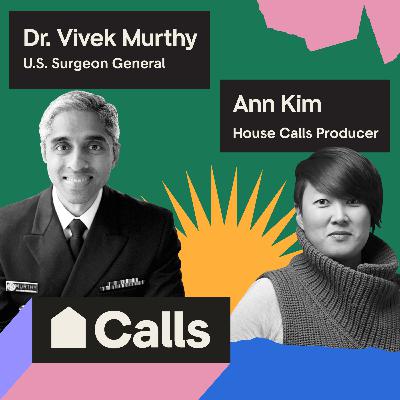
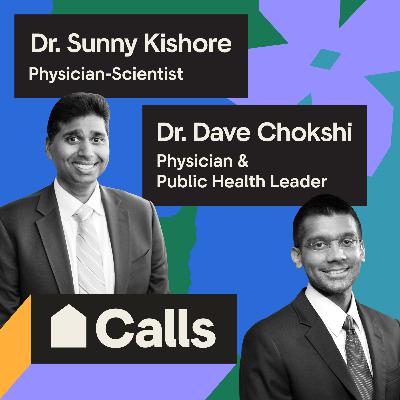
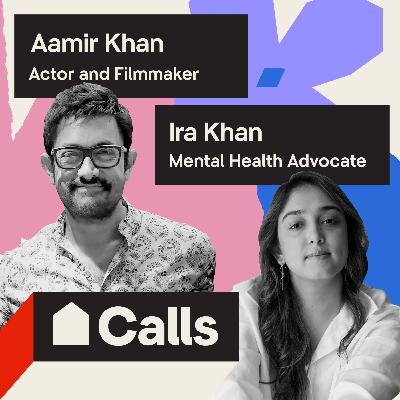
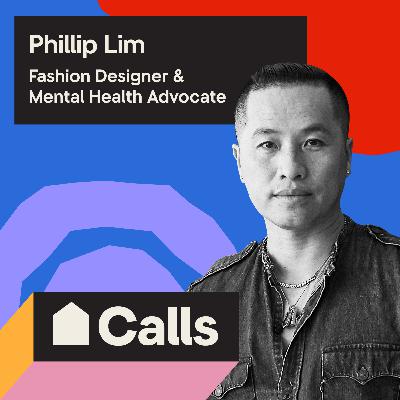
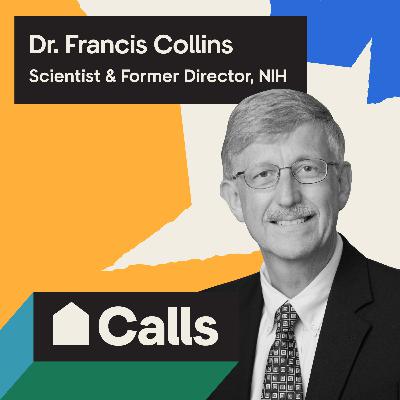
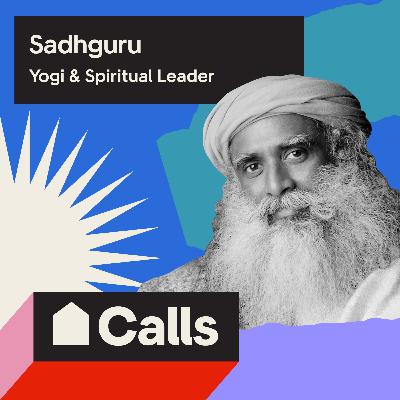
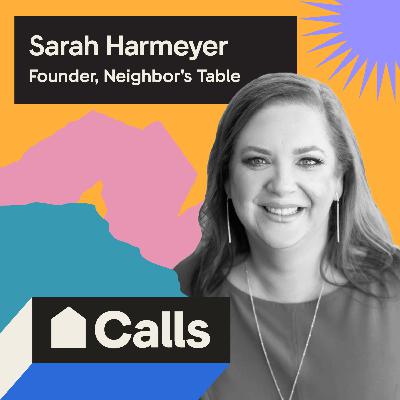
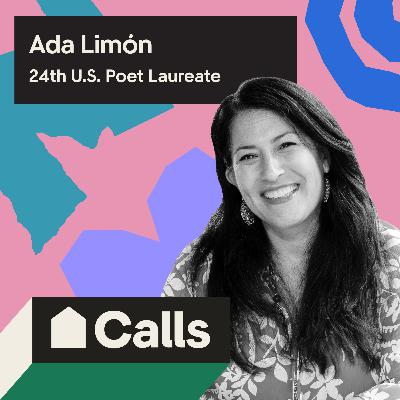
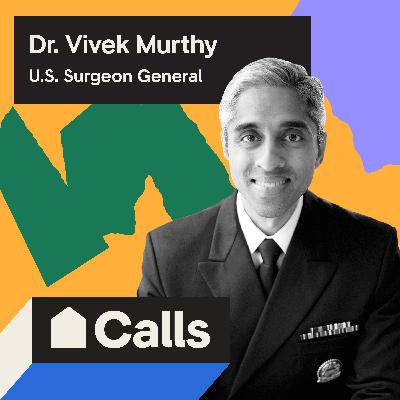
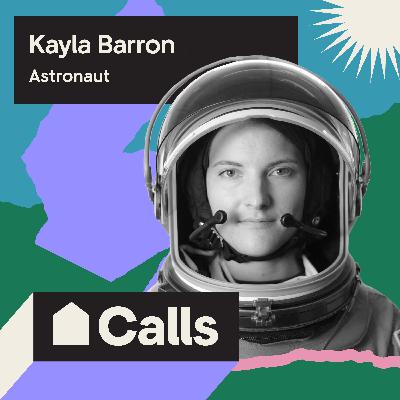













Big fan of Shankar. Insightful episode..